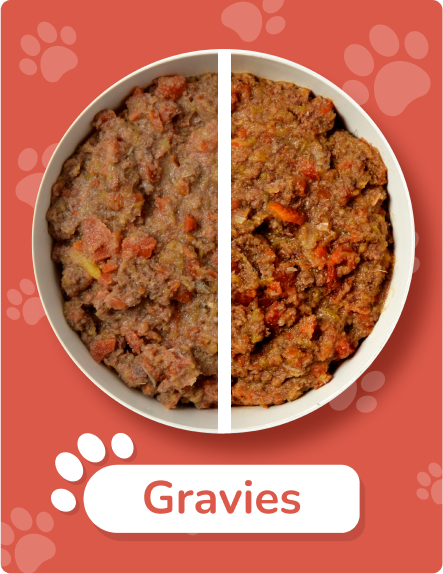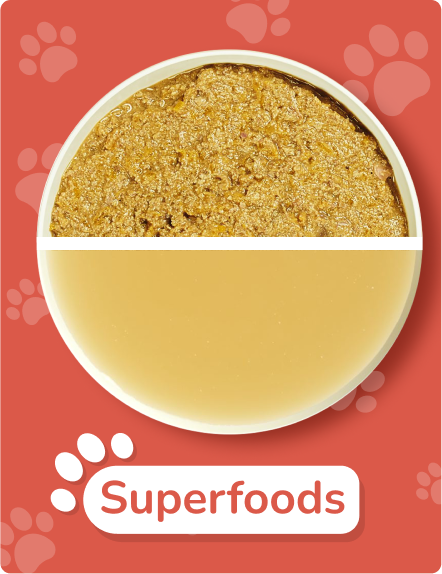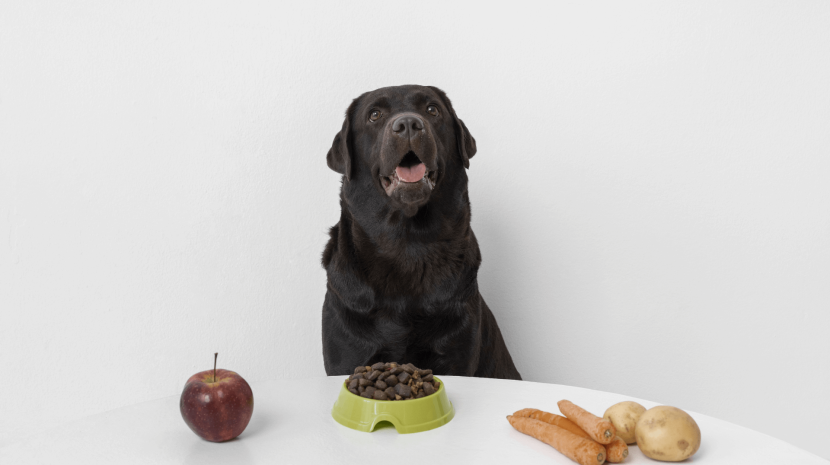Did you know that just like us and our pets, even the Vitamins needed by our bodies to stay strong and healthy have families of their own? One such all-important family is that of the Vitamin B complex. The eight different types of the B vitamins that make up this family are extremely essential for your doggo’s overall upkeep. From taking care of energy production to keeping cell growth in check, each B vitamin serves a number of functions in your pooch’s body. However, right now, we’re going to focus exclusively on Vitamin B6.
To begin with, there are certain signs that might indicate a B6 deficiency in your doggy. These include:
- anaemia (the most common sign)
- confusion, anxiety, depression
- weakness, fatigue, shortness of breath
- bleeding gums, decaying teeth, cracked lips, mouth ulcers
- dry skin, skin allergies, fleas
- constipation, diarrhoea, nausea, vomiting
- irregular heartbeat, increased cholesterol levels, weakened immunity, seizures, etc.
The sheer range of problems that can be caused to your pup due to low levels of B6 must give you an idea of just how essential this vitamin is. Some of the common reasons your doggo may become B6 deficient are:
- poor quality animal meat and organs (as these are important sources of B6)
- stress-inducing events like moving house, a near-continuous bout of travelling, being separated from family, other kinds of emotional distress
- declining digestive health in senior dogs
- poor gut health in general
- autoimmune intestinal disorders, kidney disease and arthritis also prevent the full absorption of this vitamin
As the very first reason above makes clear, diet is key to maintaining optimal levels of Vitamin B6. But before we delve into its various dietary sources, let us find out some of the ways this member of the Vitamin B family helps your furry friend stay healthy.
a. Metabolism: One of the most crucial jobs performed by Vitamin B6 is the conversion of proteins, carbohydrates and fats into smaller molecules that can be used as direct sources of energy for cell growth and tissue repair. This function of B6 explains why dogs having low reserves of this vitamin tend to feel lethargic and tire easily.
b. RBC Production: Closely related to energy production is the role of Vitamin B6 as a manufacturer of red blood cells. Even iron requires B6 to convert itself into haemoglobin. Since B6 enables oxygen (and other minerals) to be transported within and across various cells spread throughout the canine body, anemia and the fatigue related to it are amongst the commonest signs of a B6 deficiency.
c. Brain Function: Ideal levels of Vitamin B6 help maintain your doggy’s homocysteine (amino acid) levels. A B6 deficiency means high amino acid levels which in turn, will cause cognitive decline by encouraging frequent blood clotting and other harmful processes. B6 is also involved in the synthesis of various neurotransmitters such as dopamine and serotonin (the happy hormones) as well as GABA (the inhibitory hormone keeping other neural activity in check). A decrease in B6 will skewer these hormones, leading to irrational behaviour, bouts of depression as well as disrupted sleep patterns. B6 is also needed for ensuring brain development in pups, regulating insulin secretion and preventing electrolyte imbalance.
d. Improved Immunity: Your doggo’s immune system protects them from infections big and small by using antibodies to fend off uninvited guests that arrive in the form of pathogens. The smooth working of the immune system would be interrupted in the absence of sufficient Vitamin B6 which is needed to assist various chemical reactions that help create these antibodies.
e. Reducing Inflammation: Recent studies have shown this vitamin capable of producing anti-inflammatory and antioxidants responses important for fighting joint pain. On the flip side, the high levels of inflammation that arthritic dogs suffer from could lower their B6 levels. So as a precautionary measure, it is best to monitor and maintain your pet’s B6 levels in case they suffer from achy joints.
f. Gene Expression & Enzyme Regulation: Gene-expression is the all-important process by which information encoded in a gene (theoretical) is turned into a function (practical). To put it in other words, gene expression enables genes either to be turned on or turned off. Apart from assisting in this, Vitamin B6 is also known for its role in the synthesis of DNA and RNA. Many enzymes in your pup’s body need the proper amount of B6 to act as a coenzyme or assistant to carry out fundamental biochemical processes that keep the canine body going.
g. A Shiny Skin and Coat: Did you know that maintaining your doggo’s B6 levels will automatically result in a more lustrous skin and coat for them? This is because adequate B6 in your doggy’s body will ensure proper levels of sebum which is an oily substance responsible for moisturising the skin. B6 also participates in collagen synthesis which is absolutely vital for renewing not only skin and hair cells but also bones, muscles, tendons, ligaments and the joints. What better way to protect your pet from dry and itchy skin!
h. Eye & Nerve Health: The amino acid levels that we read about above also bear on your pooch’s vision. If you wish to protect those love-filled eyes from age-related macular degeneration, then keeping a tab on your doggo’s B6 levels will come in handy. B6, B1 and B12 are together known as the neurotropic vitamins, as all these three help in nerve regeneration. Being deficient in them will cause your pet a numbing sensation known as pins and needles. This happens because these B-Vitamins (B6 in particular) ensure the smooth transmission of communicative signals across the vast network of nerves that make up the nervous system.
Now that we’ve seen some of the wonders performed by the Vitamin B6, let us quickly look at certain foods rich in it. Including them in your doggy’s diet is vital mainly for two reasons:
a. since your dog’s body cannot produce any of the B vitamins by itself, diet is the only means of obtaining them
b. all the B-vitamins are water soluble, meaning after they’ve been flushed out via the urine, they need to be replenished regularly.
Some foods to fulfil your doggy’s need for Vitamin B6 include organ meats (heart, liver and kidneys); fish like sardines, salmon and tuna; eggs; non-citrus fruits like bananas, apples, papayas (with the seeds removed) etc.
Now would you be surprised if we told you that feeding your furry friend one of PetChef’s Meals will take care of their B6 requirements while also providing them with an overall balanced diet? Our four differently flavoured Meals are prepared using the freshest and healthiest sources of B6 that include chicken and mutton organ meat, sweet potatoes, pumpkin, brown rice and a host of other ingredients brimming full of various micro/macronutrients, minerals and still more vitamins. Even the Supper Topper (chicken heart, liver and gizzard), Chicken Jerky Treat (chicken breast) and the 24-Hour Bone Broth will benefit your four-legged companion by not only fighting their B6 deficiency (in case they suffer from it) but also help them keep it at bay, adding many more years of vigour and vitality to their (and so also your) life!







